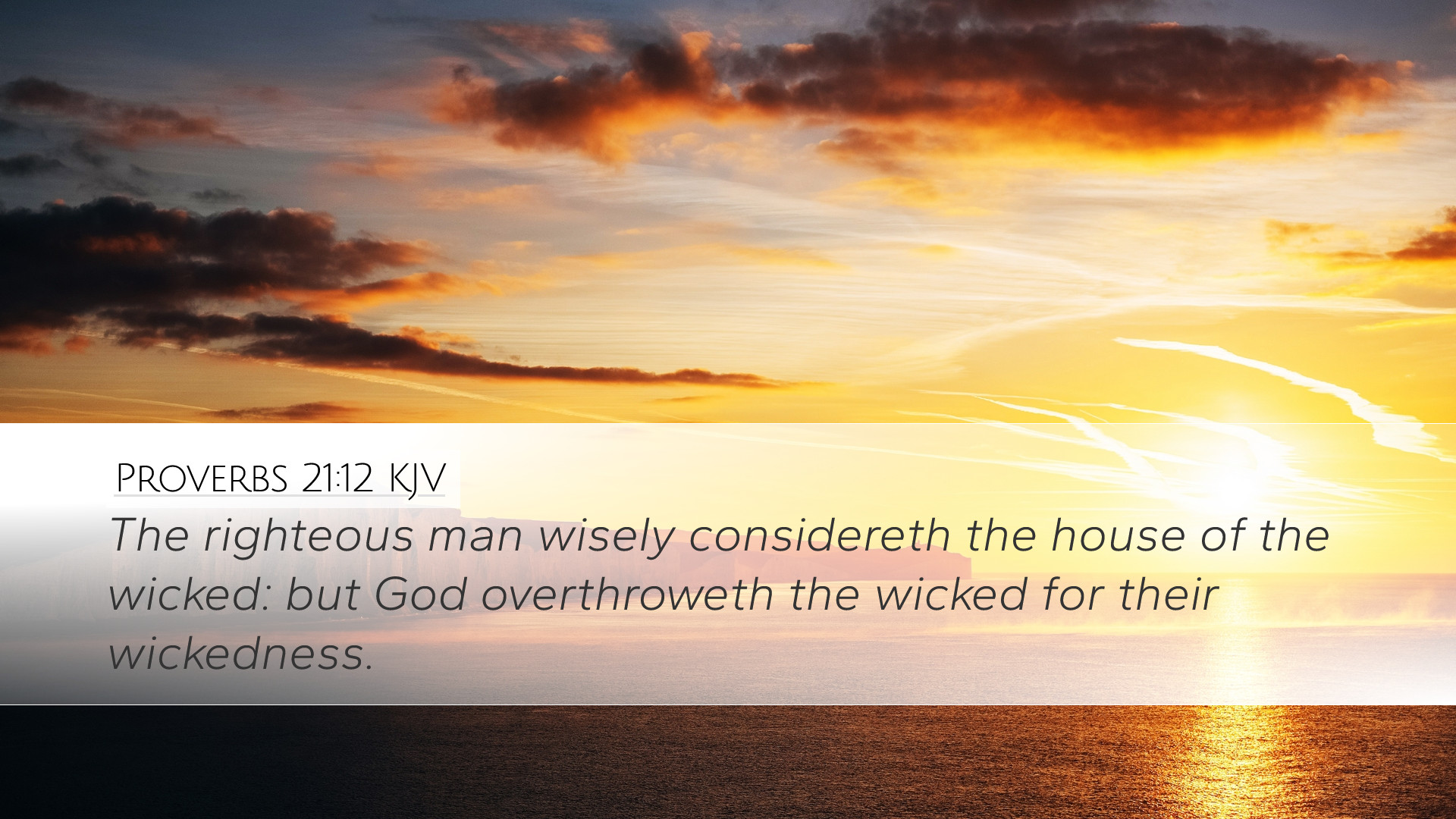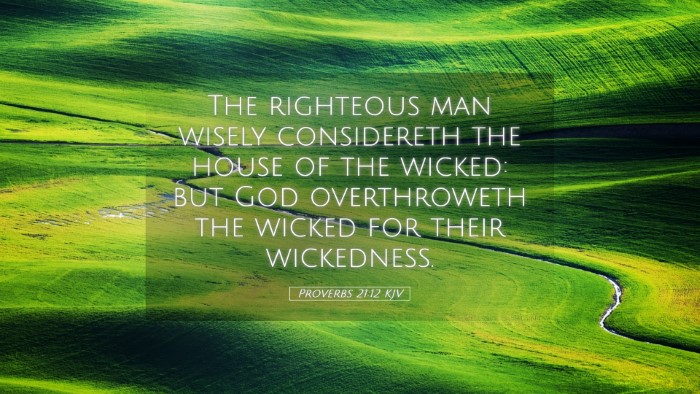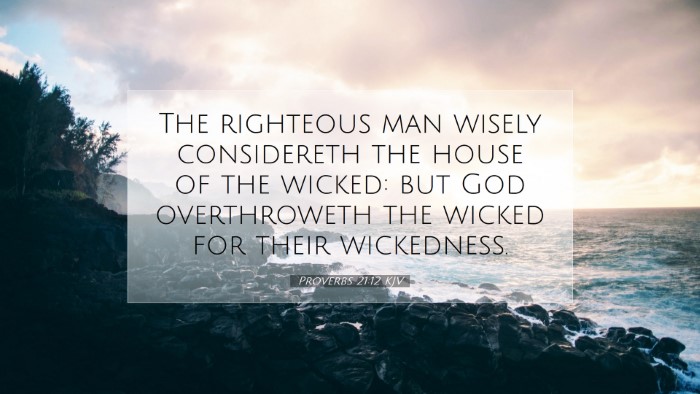Commentary on Proverbs 21:12
Verse: "The righteous man wisely considers the house of the wicked: but God overthroweth the wicked for their wickedness." (Proverbs 21:12, KJV)
Introduction
This verse presents a contrast between the righteous and the wicked, leading to profound implications for both personal conduct and observation of divine justice. Commentators across the ages have drawn attention to the insights found in the juxtaposition of these two types of individuals. We will explore various public domain commentaries to enrich our understanding of this powerful proverb.
The Righteous Man
Matthew Henry emphasizes that the righteous person is marked by wisdom and discernment. He notes that the righteous man carefully assesses the situation of the wicked, highlighting the significance of contemplation before action:
- The righteous man observes the actions and outcomes associated with the wicked.
- This observation is not merely academic but functions as a safeguard against error, enabling the righteous to distance themselves from wickedness.
Albert Barnes complements this view by discussing the moral weight of the righteous individual's observations. He suggests that the righteous may feel a moral obligation to consider the fate of the wicked as a lesson on the consequences of sin. This reflection may encourage them to live more prudently and avoid similar pitfalls.
Consideration of the Wicked
According to Adam Clarke, the phrasing "wisely considers" implies a deeper level of understanding and reflection. The righteous man does not merely observe the outward actions of the wicked but examines the essence of their behavior:
- This consideration involves moral, social, and spiritual dimensions that reveal the emptiness of a wicked life.
- Clarke suggests that the righteous explore why the wicked may prosper temporarily, only to realize that such prosperity is fleeting and deceptive.
Divine Judgment
The second part of the verse, "but God overthroweth the wicked for their wickedness," emphasizes divine justice. Here, Matthew Henry notes God's sovereignty in executing judgment:
- God's intervention in the affairs of humanity assures that wrongdoing will not go unpunished.
- This underlines a fundamental truth in the Proverbs: the moral order established by God ultimately leads to the downfall of the wicked.
Albert Barnes elaborates further, observing that God's overthrowing of the wicked is not arbitrary but rather an answer to their persistent and obstinate rebellion against Him. This reflects the biblical theme that God's justice balances His mercy.
The Future of the Wicked
Adam Clarke adds a poignant point regarding the fate of the wicked. He articulates that while the wicked might seem to thrive, their inevitable demise serves as both a cautionary tale and a source of hope for the righteous:
- Understanding the ultimate justice of God should embolden the righteous to maintain their steadfastness.
- Clarke conveys that the righteous know their adherence to God’s ways will lead to peace, contrasting sharply with the turmoil that accompanies wickedness.
Pastoral Applications
This verse has significant implications for pastoral ministry. Matthew Henry suggests that it serves as a basis for encouraging the congregation to remain righteous and reflective in their own lives. Pastors can urge their congregants to:
- Reflect on their spiritual health in light of the behavior and ultimate end of the wicked.
- Engage in prayer that contemplates the justice of God, seeking personal alignment with righteousness.
Theological Reflections
For students and scholars, this verse invites deeper theological contemplation. Albert Barnes posits that understanding this proverb aids in developing a coherent theological framework regarding sin, judgment, and mercy. Scholars can consider the implications of:
- The balance of God’s justice and mercy, a recurring theme throughout scripture.
- The necessity of humility in light of God’s righteous judgments against the wicked.
Conclusion
In summary, Proverbs 21:12 compels believers to reflect on the moral order of God's creation. Both the righteous and the wicked are subjects of divine observation and judgment, reminding us of our accountability. The commentators, ranging from Matthew Henry to Adam Clarke, consistently urge us toward a life characterized by wisdom and righteousness, keeping our eyes fixed on the ultimate justice rendered by God.


